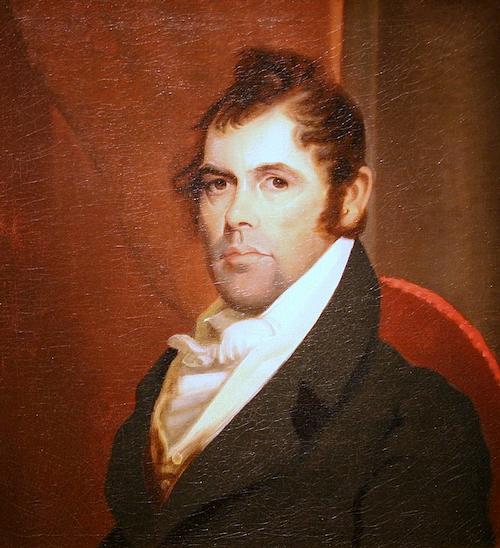Richard Mentor Johnson served as the ninth Vice President of the United States from 1837 to 1841. He was the only Vice President elected by the Senate under the Twelfth Amendment of the Constitution.
Early Life
Johnson was born on October 17, 1780, in Beargrass, Kentucky (now Louisville). He grew up on his family plantation as one of the first settlers on the Kentucky frontier. In 1796, he attended Transylvania University and shortly after opened a law firm in Great Crossing, Kentucky. Johnson’s unwavering commitment to public service started as a young lawyer working pro bono and welcoming disabled veterans to his town.
However, his partner, Julia Chinn, a mixed-race enslaved woman inherited after his father’s death, significantly influenced Johnson’s early life. While interracial marriages were illegal in Kentucky, Chinn was Johnson’s common-law wife, and they had two daughters together.
Early Career
As a young attorney, Johnson was the first native Kentuckian to serve in the state’s legislature in 1804. In 1806, he was elected to the U.S. House of Representatives from the Democratic-Republican party, narrowly meeting the minimum age requirement of twenty-five. Johnson was famously one of the War Hawks who viciously advocated for the War of 1812. In anticipation of the War, he returned to Kentucky to enlist volunteers and was so overwhelmed by the number of men compelled to fight that he had to turn some away.
Johnson gained national recognition for his leadership in the Battle of the Thames, spearheading the first assault. While under heavy gunfire, Johson led a small group of twenty men, diverting attention from the main battalion, allowing them to advance. The exact source of the fatal shot remains disputed, but Johnson is credited with killing Tecumseh, a Shawnee chief. After the War, Johnson was elected to the Senate after Senator John J. Crittenden resigned in 1819.
Vice Presidency
After serving a decade in the Senate, Johnson, as Van Buren’s running mate, was elected Vice President in an unconventional manner. Van Buren secured a unanimous nomination at the Democratic National Convention, but Johnson received only the minimum votes required to join the ticket. During the general election, Johnson failed to amass sufficient votes to claim the Vice Presidency outright, resulting in the sole runoff election for Vice President in U.S. history. The Senate, exercising its authority under the Twelfth Amendment, ultimately chose Johnson for the position.
Generally, Johnson’s vice presidency was uneventful, as many in his political party ruthlessly criticized him for his public relationship with Chinn and their children. Most notably, during the 1840 Democratic National Convention, the party decided not to select Johnson as Vice President even though he was the incumbent. After serving only one term from 1837 to 1841, Johnson returned to Kentucky and finished his career in the Kentucky legislature.
Johnson died on November 19, 1850. After his death, the Fayette County Court refused to allow his daughters to inherit his estate, claiming they were illegitimate and without rights.






